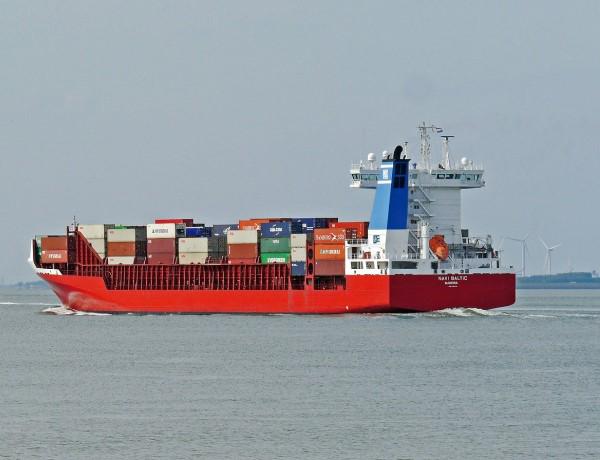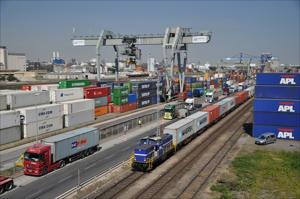Response to tariffs by Chinese importers may see extra costs for US shippers
US exporters could face demurrage, detention, destruction of cargo, or return costs, after reports suggest some Chinese importers have stopped accepting cargo.
Pat Fosberry, director of export compliance at US forwarder John S James Co, told that while the focus in the US had been on the effect of tariffs on importers, now “US exporters are beginning to feel consequences”.
“Some of our US exporters are reporting that many buyers in China are cancelling orders, stating that China’s import tariffs will escalate the landed costs to be unviable,” Mr Fosberry explained.
Sara Dandan, founder of D&D and maritime dispute company FourOneOne, explained: “The prevalent thinking for US importers was going to be to hold containers at in-bond warehouses in the US after they came in, and then re-export them back to China, to avoid customs fees and duties, and to avoid demurrage and detention fees.
“To me, this seems like the Chinese are heading that off so they themselves don’t get stuck with shiploads of product – and also as a response to rising [US] tariffs.”
And Mr Fosberry said: “It is uncertain how ocean carriers will handle the increase of containers sitting at the ports if cargo is not collected. Will they assign all the liability and costs to the US exporter if containers are not claimed and entered?
“Demurrage, detention, destruction of cargo, return to the US and US domestic costs are all possible for the US exporter.”
Ms Dandan told that, because of Federal Maritime Commission rules, even though the containers would be at a foreign port, it was probable that “they would follow the guidelines of just billing the consignee on the bill of lading, to make their lives easier”.
When asked if it was likely carriers would waive D&D charges during all the uncertainty, she laughed.
But he added that the main concern for US exporters was that “some China buyers have told them they will not be accepting shipments upon arrival”.
But advised: “If you haven’t sent anything yet, I guess the best way to mitigate it is to not send anything, if there are claims that they will refuse cargo and turn it away. Otherwise, I think we will see a lot of abandoned cargo. What else are they supposed to do?”
And she added: “That seems to be speculation for now though. They could re-export it back into the US or see if they can export it elsewhere. I suppose it depends on their business model, etc.
“I highly suspect we’re going to see a lot of companies buying out of countries other than China, and I can all but guarantee that if you looked hard enough, there’d be a Chinese buyer and company there. I am seeing a lot of talk about that on the import and the export side,” said Ms Dandan.
“As for how comfortable companies feel doing that, since laws and regulations vary according to country, I will leave up to them,” she concluded.


